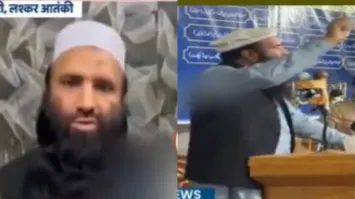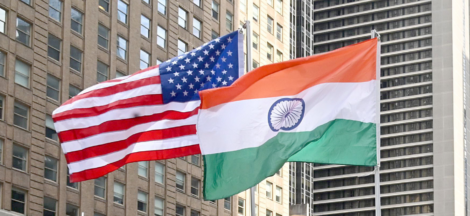Heightened tensions between Iran and Israel have triggered a warning for Indian nationals in the Middle East. A significant uptick in violent incidents involving key figures from militant groups has further destabilized the region, raising concerns for expatriates and travelers.
On July 28, senior Hamas leader Mohammed Deif narrowly escaped an Israeli airstrike in Gaza, an incident that has led to a surge in retaliatory threats from militant factions. This follows the assassination of a high-ranking Hezbollah official in Lebanon, attributed to Israeli operatives. These incidents underscore the intensifying covert conflict between Iran-backed groups and Israel, with the potential for broader regional ramifications.
The Indian Ministry of External Affairs (MEA) has issued advisories urging citizens to exercise heightened caution. Indian embassies in the Gulf region and in Israel are on high alert, coordinating closely with local authorities to ensure the safety of Indian nationals. The advisory specifically mentions the risks of travel in areas close to the conflict zones, including parts of Lebanon, Syria, and the Gaza Strip.
The conflict’s escalation has deep roots in longstanding geopolitical rivalries. Israel’s security policies have increasingly targeted Iranian proxies, aiming to disrupt their operational capacities. Iran, in turn, continues to bolster these groups with financial and military support, viewing them as critical components of its regional strategy.
The Israeli Defense Forces (IDF) have intensified surveillance and intelligence operations, employing advanced drone and cyber warfare tactics to preempt potential threats. Reports indicate a significant increase in airstrikes on suspected militant hideouts and weapons depots. The IDF’s strategy aims to deter Iran’s influence while preventing attacks on Israeli soil.
Iran’s Revolutionary Guard Corps (IRGC) has responded with enhanced military preparedness, conducting drills and mobilizing allied militias. Tehran’s rhetoric has become more combative, with promises of severe retaliation against any perceived Israeli aggression. The IRGC’s Quds Force, responsible for extraterritorial operations, has been particularly active, coordinating with Hezbollah and other allied factions to counter Israeli actions.
Amidst these developments, the broader international community remains concerned about the possibility of a full-scale confrontation. The United Nations has called for restraint from both sides, emphasizing the need for diplomatic solutions to avoid further civilian casualties. The U.S. has reaffirmed its support for Israel’s right to self-defense while advocating for de-escalation to prevent a wider conflict.
For Indian nationals in the Middle East, the ongoing tensions pose significant risks. The MEA’s advisory stresses the importance of remaining vigilant and keeping abreast of local security updates. Indian businesses operating in the region are also advised to review their contingency plans and ensure robust communication channels with local authorities and Indian embassies.
The situation remains fluid, with potential flashpoints capable of triggering further escalation. Analysts warn that the current pattern of tit-for-tat attacks could spiral into a more extensive conflict if not carefully managed. The international community’s role in mediating and fostering dialogue between Iran and Israel is crucial to mitigating the risks and achieving a sustainable resolution.
Indian nationals, particularly those in high-risk areas, are urged to stay connected with embassy services and heed travel advisories. The MEA continues to monitor the situation closely, ready to provide assistance and support to ensure the safety and security of Indian citizens abroad.




 World Bank Predicts Long Path for India’s Income Growth
World Bank Predicts Long Path for India’s Income Growth 